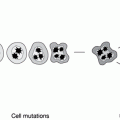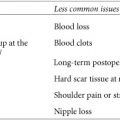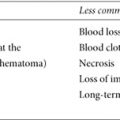Chapter 6
Genetic Testing
Facing Your Hereditary Horoscope
IT’S AN AGE-OLD QUESTION: If you could see into your future, would you want to? A better question might be: If you could change your potentially high-risk destiny, would you?
Hundreds of predictive blood and tissue tests can reveal whether you’re an above-average candidate for disease, and more are quickly becoming available. Still, genetic testing for cancer risk isn’t a true crystal ball. The glimpse it gives isn’t a guarantee that you’ll get cancer, but it can tell you if your risk is steep. So why explore your cancer risk when there are no guarantees? Because testing gives you and your family the chance to reshape your future, particularly if you have a risk-raising mutation, by clarifying your choices: wait and see what happens, screen to detect cancer early, or pre-emptively act to reduce your odds of developing breast or ovarian cancer.
If you decide to pursue BRCA testing after counseling, a small needle prick or a mouth rinse begins the testing process. Your sample will be sent to Myriad Genetics, a commercial laboratory, where a technician will separate your BRCA genes from the rest of your DNA and scan them for abnormalities. Results are forwarded to the healthcare professional who ordered the test, usually in two to three weeks or longer if you live outside the country.
Which Test Is Right for You?
Myriad’s BRACAnalysis test explores segments of the BRCA genes where we expect to find a mutation. Current tests locate most (not all) cancer-causing mutations in the BRCA genes. Scientists know that others exist, but we can test only for those we know about. It’s like space exploration: we know how to navigate to Mars, yet we haven’t a clue about traveling to other solar systems—even though we know they’re out there somewhere.
Hereditary syndromes caused by less common mutations in other genes require different testing procedures from different labs. Your genetic counselor can explain whether it makes sense for you to pursue these. Most BRCA tests involve one of three types:
1. Full-sequencing tests look for abnormalities in BRCA1 and BRCA2. This is a first step when no one else in the family has been tested, or if those already tested had negative results and a mutation is still suspected.
2. Single-site tests search for a specific mutation already identified in the family.
3. Multisite tests search for the three most common BRCA founder mutations in people of Ashkenazi Jewish descent. These mutations have been passed from generation to generation over hundreds of years. Among Ashkenazi, 90 percent of all BRCA abnormalities are one of three founder mutations: 185delAG mutation in BRCA1, 5382insC mutation in BRCA1, or 6174delT mutation in BRCA2.
BRCA testing comes with a high price tag, from about $400 to $4,000, depending on the test. Full sequencing is more expensive than other tests because it examines hundreds of areas on BRCA1 and BRCA2. Single-site and multisite tests evaluate only a few areas of the BRCA genes and are less expensive. Myriad also offers the BRACAnalysis Rearrangement Test (BART), an additional diagnostic that looks for less common BRCA mutations known as large rearrangements. BART is run at no charge on all samples for breast and ovarian cancer survivors who meet Myriad’s family history criteria. The test, which may not be covered by insurance, can be ordered separately if you don’t meet the criteria or if you had a standard BRACAnalysis test prior to August 2006. Results are provided in about two weeks. A genetic counselor can help you decide if BART is appropriate for you or someone in your family.
MY STORY: What’s the Point in Knowing?
I remember talking with my father about genetic testing, and he asked, “What is the point in knowing?” I think he believed the knowledge would just cause me suffering; better to wait for your fate and be surprised by it than suffer with the knowledge that it was coming. Perhaps this was part of his pragmatism or part of his growing up in the Philippines, where resources were limited—you just played the cards you were dealt. At that time, my father didn’t know there was something you could do if you had positive test results. Once he knew I could take actions like surgeries to reduce my risk, and that what I got in return was the opportunity to avoid cancer, he and my mother told me that testing was the bravest thing I’d ever done for myself and for those who love me.
—GRACE
Powerful, Yet Imperfect
BRCA testing isn’t perfect, and like most things in life, it has advantages and disadvantages. On the beneficial side, testing clarifies cancer risk and empowers you to make decisions about current and future medical options. Your testing may help to inform others in your family about their hereditary cancer risk as well. On the other hand, testing can be complicated. It doesn’t always provide a simple “yes” or “no” about hereditary cancer risk. Learning you have a BRCA mutation can quickly turn your otherwise rosy world topsy-turvy. You may feel helpless, uncertain about your future, overwhelmed, and even guilty about the chance of passing your mutation to your children.
Stay updated, free articles. Join our Telegram channel

Full access? Get Clinical Tree







